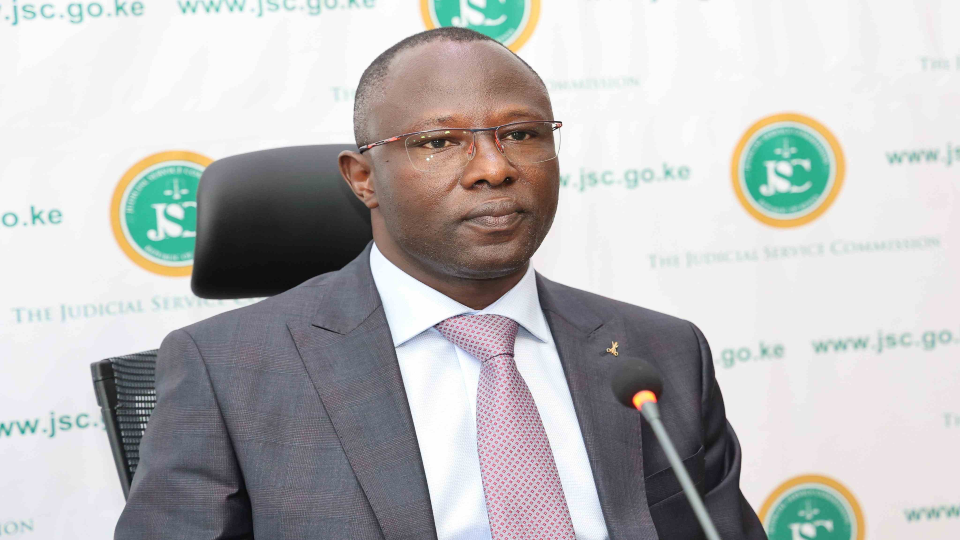IEBC Unable to Facilitate MP Recalls Due to Legal Framework Gaps
The Independent Electoral and Boundaries Commission (IEBC) has announced that it is unable to process petitions for the recall of Members of Parliament (MPs) due to the lack of a clear and enforceable legal framework. This development has sparked significant concern among citizens and legal experts, as it effectively stalls a constitutional mechanism designed to hold elected leaders accountable.
The IEBC's statement comes in the wake of heightened public demand for the recall of several MPs, driven largely by dissatisfaction with the controversial Finance Bill 2024, which triggered nationwide protests. The commission has reportedly received multiple petitions seeking to oust elected representatives, with four such petitions currently under review. However, the absence of a robust legal structure has rendered these efforts futile, leaving voters frustrated and the recall process in limbo.
Article 104 of the Kenyan Constitution grants citizens the right to recall their MPs before the end of their term, provided specific conditions are met. These conditions include evidence of gross violation of the Constitution, misconduct, mismanagement of public resources, or conviction of an offense under the Elections Act. To initiate a recall, a registered voter must file a petition with the IEBC, supported by signatures from at least 30 percent of the registered voters in the constituency, with a minimum of 15 percent from each ward. Once verified, the IEBC is tasked with conducting a recall election within 90 days, where a simple majority determines whether the MP retains their seat.
Despite this constitutional provision, the process has been undermined by a 2017 High Court ruling that declared key sections of the Elections Act unconstitutional. Specifically, Sections 45 to 48, which outlined the grounds and procedures for recalls, were struck down, leaving the IEBC without clear guidelines to proceed. The court found these provisions to be discriminatory and inconsistent with the Constitution, effectively dismantling the operational framework for recalls. Since then, legislative inaction has prevented the establishment of a revised legal structure, rendering the recall process dormant.
IEBC Chairperson Erastus Ethekon recently confirmed the commission's predicament, stating that while petitions have been received, the lack of a comprehensive legal framework prevents further action. He emphasized that the IEBC is committed to upholding the Constitution but is constrained by the absence of enabling legislation. Ethekon's remarks were echoed by IEBC Secretary Marjan Hussein, who, in response to a September 2024 inquiry from KMK Africa Advocates LLP regarding the recall of a senator, acknowledged that the invalidated sections of the Elections Act have left the commission without legal grounds to act.
The Law Society of Kenya (LSK) has been vocal in its criticism of the situation, urging Parliament to address the legislative gaps urgently. LSK President Faith Odhiambo highlighted that the continued absence of a functional recall mechanism undermines the constitutional right of citizens to hold their leaders accountable. She called for swift amendments to the Elections Act to restore the process, pointing to the Elections (Amendment) Bill, Senate Bill No. 29 of 2024, which is currently awaiting its second reading in the National Assembly. This bill proposes to eliminate outdated provisions and streamline the recall process, though it has sparked debate over its proposal to narrow the grounds for recalling MPs.
Political analysts have described the recall mechanism as a constitutional promise that remains largely unattainable due to structural and political challenges. The requirement to collect signatures from 30 percent of registered voters, coupled with strict timelines—such as the inability to initiate recalls within the first 24 months of an MP's term or within 12 months before a general election—poses significant logistical hurdles. Critics argue that these constraints, combined with the lack of clear legislation, make the process a "structurally unfair fight" for citizens seeking to exercise their rights.
The current wave of recall petitions reflects growing public frustration, particularly following the Finance Bill 2024 protests, which many Kenyans viewed as a betrayal by their elected representatives. However, historical attempts to recall MPs, such as those targeting Ken Okoth in Kibra in 2014 and Kimani Ngunjiri in Bahati in 2015, have consistently failed due to technicalities, insufficient signatures, or legal uncertainties. No MP has ever been successfully recalled under Article 104, underscoring the challenges of translating constitutional rights into practical action.
As the IEBC prepares for the 2027 general elections, it has appealed to Parliament to fast-track electoral reforms, including those addressing the recall process. The commission is also focusing on other priorities, such as resuming continuous voter registration in August 2025 and organizing 23 by-elections across the country. Ethekon has assured the public that the IEBC is committed to transparency and accountability, aiming to rebuild trust in the electoral system.
For now, the stalled recall process remains a point of contention, with citizens and advocacy groups pressing for legislative clarity to empower voters. The outcome of the Elections (Amendment) Bill and the broader push for electoral reforms will likely determine whether Kenyans can effectively exercise their constitutional right to recall non-performing MPs in the future.


